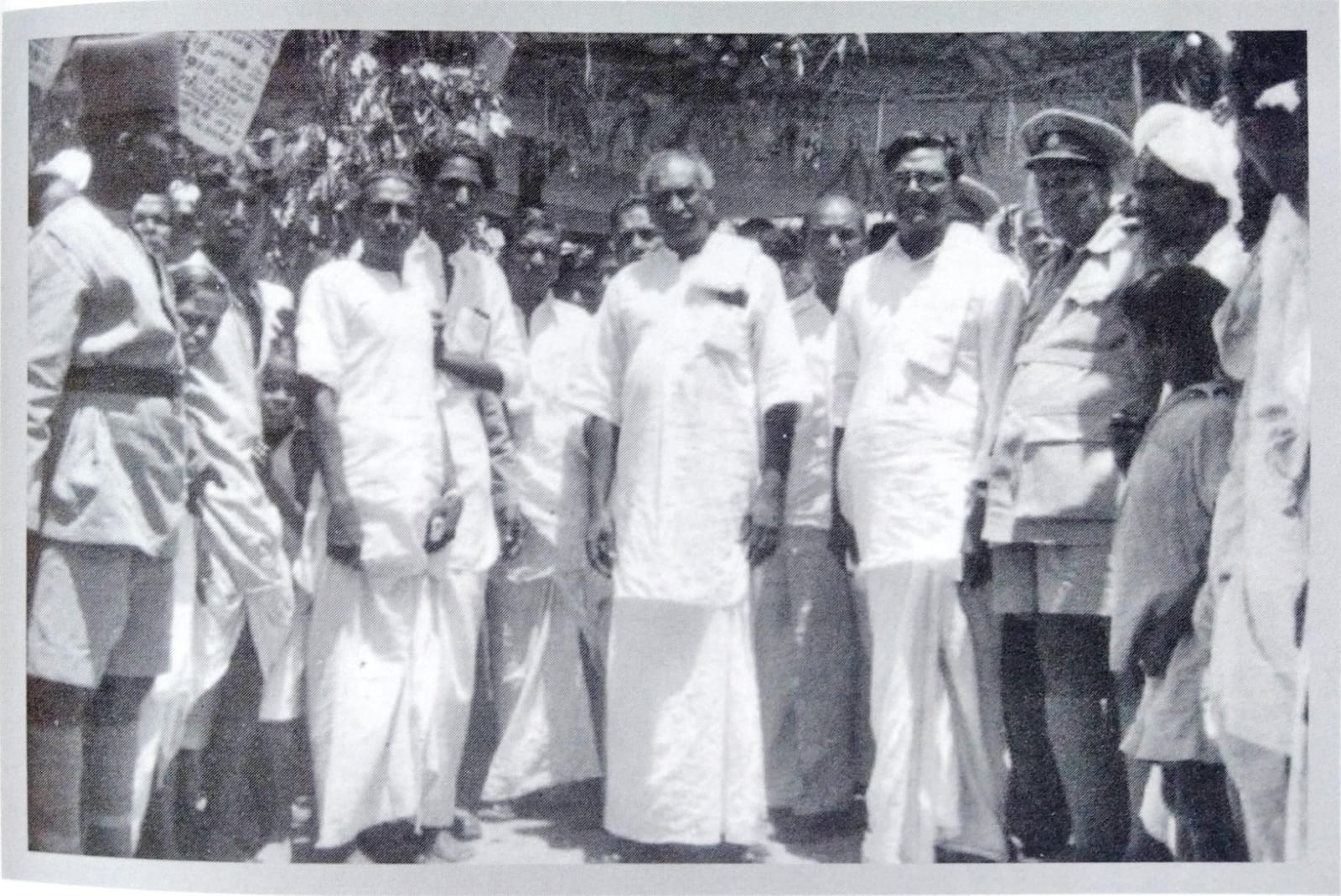IN the decades following Indian independence, two of the most urgent and alarming issues that involved children were education and malnutrition. Entire villages had no schools and children suffered from severe acute malnutrition (SAM). But one of the ways the country sought to promote education and decrease child malnutrition rates was through the midday meal scheme pioneered by Kumaraswami Kamaraj, popularly known as Kamaraj.
The midday meal scheme was first launched in the 1920s and then implemented in independent India around 1956 in the southern state of Tamil Nadu. The program aimed to uplift children from the most underserved communities in India and especially benefited girls, formerly-called “untouchables” and indigenous communities. The idea was, by giving children from these communities access to education and improved health through meals, their life expectancy and quality of life could be better. This was the need of the hour, since the life expectancy in 1947 was just 32 years.
The schemes to promote education through free and compulsory school education and midday meals were some of the most successful methods to improve both literacy and nutrition rates among children. But these two issues still require urgent attention today, with millions of children out of school and the country having one of the highest child malnutrition rates in the world. It is estimated that 46% of children in India under the age of 3 suffer from undernutrition – that is more than the sub-Saharan African region. Furthermore, children from disadvantaged caste communities reported higher levels of malnutrition.
Educate a girl and build the nation. That is how Give describes the Every Girl in School mission that provides out-of-school girls with meals, books, uniforms, school fees and other education related expenses. In equipping girls with the tools they need to access education, their lives are transformed and their futures are improved.
Making education free and compulsory
Born on July 15th in 1903, Kamaraj believed that it was only through education that millions could be lifted out of poverty. Even though he left school after the death of his father to be the sole earning member of his family, Kamaraj prioritized education initiatives for children throughout the state. In the existing education system at that time, students studied for only 3 hours a day in two sessions: one in the classroom and the second at home where they would learn the occupation of their parents. This was called the Heredity Education Policy in which boys would learn the trades of their fathers while girls would learn household chores from their mothers. This “education system” was met with opposition since it failed to achieve the objectives of school education. In fact, it did more to reverse the progress made to create equality in the classroom.
Walk no further than 3 kilometers
Kamaraj opposed this system since it prevented children from reaching their true potential and kept them in a perpetual state of poverty. When he made the decision to scrap the policy, he also realized that there were many villages in India without any schools at all. Based on the model that “if children couldn’t go to school, the school should go to the children”, thousands of schools were built in places where there were none. This was done so that poor, rural children need not walk further than 3 kilometers to go to school. In making education free and compulsory to standard 11, it was now possible for disadvantaged groups of children, such as girls, to go to school and have the opportunity to improve their lives.
Improving health and education though midday meals
How could the education and health of children be improved? When decision makers asked this question, they were on the right track. Looking back into history, they drew inspiration from a scheme from the 1920s that provided tiffin to school students who were too poor to eat everyday. The health of the children improved and school attendance increased; the scheme was considered a success. The midday meal scheme was thus implemented in Tamil Nadu in 1956 and provided one meal a day to poor children in schools. Until then, families who could not afford to feed or educate their children had no choice but to keep them home.
Once the midday meal scheme was implemented, parents became so enthusiastic about their sons and daughters getting a free nutritious meal that they started sending them to school. In classrooms, the children learned alongside peers from diverse backgrounds to build the foundation of their futures. The midday meal scheme achieved its objectives of improving the health and education of children that decades later, the Supreme Court ordered government-funded primary schools throughout the country to implement the scheme.
Each year, Education Development Day is celebrated on July 15th, the birth anniversary of Kumaraswami Kamaraj. Observed since 2006, it is an opportunity for students and educators to appreciate the successful effort by Kamaraj to take education to the masses, during a time when it was reserved for a privileged few. Though he is best known for being the pioneer of the midday meal scheme, Kamaraj was also responsible for laying the groundwork to ensure that millions of children, including girls, could receive an education.
Mission: Every Girl in School
But millions of girls are still prevented from going to school because their families cannot afford school-related expenses such as books or uniforms. Mission: Every Girl in School aims to support the education of thousands of girls by covering the cost of meals, books, uniforms, school fees and other education related expenses. Even though education is a basic right, poor families are seldom able to afford a school education and often make their children support the family by working. Donating ₹1,000 each month will help one girl go to school for one month and help them access their right to education. To support our Every Girl in School mission, donate here and join hands with us as a monthly partner to make sure that girls can access an education and better their lives.
–
Give’s mission is to “make giving bigger and better.” Give is the most trusted donation platform in India for fundraisers and crowdfunding campaigns. Through our technology solutions, we enable individuals and organisations to fundraise and donate to a cause, charity or NGO with trust and convenience. Give’s community of 2.7M+ individual donors and 300+ organisations supports 3,000+ verified nonprofits with 80G deduction and serves 15M+ people across India. Find a fundraiser today!

Shirley has been in the development sector for over 10 years and is passionate about making a change in the world around her, including adopting dogs and writing to make a difference.
Discover more from
Subscribe to get the latest posts sent to your email.

